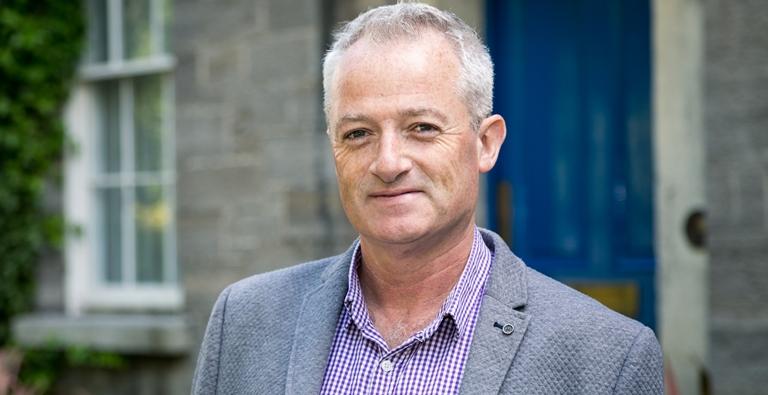

Spotlight on research: From potatoes to nanotech to the stage
This week's Spotlight on Research is with Dr Padraig Murphy Lecturer in science communication at the School of Communications, DCU
You study science communication - how did you develop an interest in that?
“I like it because it combines my interests in science and in the sociology and philosophy of how people talk about and understand issues.
When I was a teenager I liked biology and English in school and I chose science – I did a degree in environmental and biological pollution sciences in Wales and I enjoyed it.
Then I worked in the pharmaceutical industry and I was even trying my hand at acting. I saw an ad in the paper for the Masters in Science Communication in DCU, so I decided that would combine my interests in communication and science.”
Now you research and teach at DCU. What kinds of issues have you explored?
“I now run the Masters in Science Communication and teach on the programme. I’ve done a lot of research work on the environment and biotechnology, and how people perceive new technologies in those areas.
One project funded by the EPA was to set up a ‘citizens’ jury’ to deliberate a new project that was starting in Ireland to grow GM potatoes that are resistant to potato blight. That was an interesting process.
People came forward from the local community to hear from experts about the project and its implications. In the end, people were quite comfortable with the project; they were more concerned about aspects like patenting discoveries arising from the work.
Another big area is climate change. I have worked with the FuJo Institute here in DCU to look at Irish coverage of climate change in media and social media.
We found that there were low levels of denialism but in general coverage has been low. That said, it spiked around the time of COP21 in Paris in 2015, and since then climate change has been covered more as a political issue in the media here.
I’m interested now in looking at how popular broadcasts and services like weather forecasts could be used as a public engagement tool for increasing awareness of the science of climate change.”
You have also looked at the sights and sounds of nanotech – what’s that about?
“Nanotechnology has been a big interest of mine for many years, particularly because it was seen by some initially as a potentially dangerous thing but those fears don’t seem to be as acute now, although they still exist.
"I have worked with Dr Norah Campbell from Trinity College Dublin Business School and Dr Cormac Deane from IADT on how nano is portrayed visually in TV programmes, films, ads and so on.
We have found that the visual aspects can represent nano in an alien way. There’s an element of strangeness there. We are now looking at sounds in nano media too."
You are part of big European projects to encourage responsible research and innovation – what are you doing there?
“Responsible research and innovation, or RRI, is a bit of a buzz term at the moment, and the underlying premise is to make sure that research and innovation is designed thinking about the outcomes and impacts on wider society.
DCU is involved in a European Horizon 2020 project called NUCLEUS (New Understanding of Communication, Learning and Engagement in Universities and Scientific Institutions) that looks at ways of embedding RRI in university research.
We look at how science can be more responsive to grand challenges like population growth and food and water security and constantly asking are we doing the right kind of research for society and how we can involve the public.
We have 17 institutions across Europe and also institutions in South Africa and China involved.
RRI is a really prominent area of interest for me, as it brings in the philosophical and ethical dimension of how we talk about science, and how it can’t be too ‘teachery’ and removed, and how it could engage all aspects of society.”
You were also a co-editor of the 2017 book ‘Little Country, Big Talk: Science Communication in Ireland’. How did that come to be?
“The book celebrates the 20th anniversary of the Masters in Science Communication in DCU and it features contributions from graduates.
It also showcases some research conducted by our Celsius research group on engagement with science and technology.
Brian Trench was the driving force, and with Dr Declan Fahy here at DCU and myself we brought it together reflecting on how the landscape of science communication has changed in Ireland over those decades.”
And how has it changed?
“There is definitely greater public engagement with science in Ireland and researchers are being encouraged to communicate more, but I think we need to develop better forms of engagement around more politicised issues like water, wind farms and incinerators, and we need more of the media engaging in serious coverage of science.”
What do you do when you are not teaching and researching?
“I still have the theatre bug, and I’m currently involved on the production side of a play called An Experiment with an Air Pump by Shelagh Stephenson, which explores science and ethics and will be performed in Smock Alley in Dublin from July 4th.”
